A-F
Birch, EdmundEdmund Birch works on nineteenth-century French literature. His research interests focus on the novel, the history of journalism, nineteenth-century politics and popular culture, and his work draws on a range of authors including Balzac, the brothers Goncourt and Maupassant. |
|
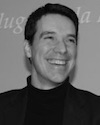 |
Cacho, RodrigoRodrigo’s research focuses on Renaissance and Baroque cultures and Spanish American colonial literature. His scholarship has been concerned with literary genres such as burlesque and epic poetry, and the works of Francisco de Quevedo. It also treats aspects related to the transmission of culture in the early modern period, including interdisciplinary approaches such as theory of painting and the art of memory. The relationship between art and literature is another area of his research, with a particular interest in painters such as Diego Velázquez and Juan de Valdés Leal. He also works on colonial poetry, especially on the emergence of literary communities in the New World. |
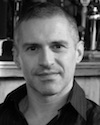 |
Chinca, MarkResearch interests centre on the languages of medieval literature, especially questions of poetics, form, and fiction; religious and devotional writing; minnesang; the Kaiserchronik; the beginnings of vernacular literature. |
G-M
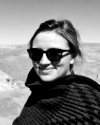 |
Feile Tomes, MayaMaya's research revolves around the literary culture of the early modern Iberian world, focusing on transatlantic dialogues, multilingual dynamics (Spanish, Portuguese, Italian, Latin), and classical reception; she also has a special interest in translation. |
Franklin-Brown, MaryMary Franklin-Brown studies medieval writing in French, Occitan, Latin, and Catalan. She interprets these texts though the dual lenses of medieval philosophy and current critical thought, and she also takes account of the material transmission of texts through performance or manuscript copy. Her Reading the World: Encyclopedic Writing of the Scholastic Age (University of Chicago Press, 2012), a Foucauldian archaeology of medieval encyclopaedias, received the Harry Levin Prize from the American Comparative Literature Association. |
|
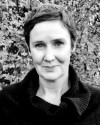 |
Gilby, Prof. EmmaEmma Gilby works on literary and intellectual history, especially within the early modern period. Much of her research has focused on poetic theory and its connections to the rhetoric, philosophy and theology of seventeenth-century France. |
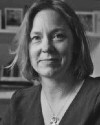 |
Griffin, MirandaMiranda's research interests are: Landscape in medieval French narrative; Medieval representations of space and time; Medieval theories of temporality; Ecocriticism and ecomaterialism; Text and image in medieval manuscripts. |
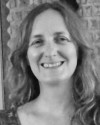 |
Haywood, Louise MLouise Haywood's research interests lie in medieval Iberian literature and culture. Current work is on authority, truancy and humour in fourteenth-century Iberian culture and the poetics of vision and scholastic psychology in fifteenth-century literary culture. Other interests include the representation (modern and medieval) of the three faiths of medieval Iberia and feminist approaches to medieval culture. |
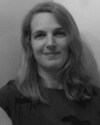 |
Kogut Lessa de Sá, VivienVivien Kogut Lessa de Sá is interested in comparative studies in Brazilian, Portuguese and English literatures, early colonial Brazil and early modern travel writing. Her research explores sixteenth-century cultural exchanges between Europe and the New World, with a focus on interactions between England, Portugal and Brazil. |
N-S
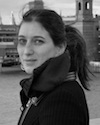 |
Reich, RebeccaTwentieth-century Russian literature, film, music and popular culture; literary politics; intellectual and cultural history; the history of science and medicine, particularly psychiatry; samizdat and dissent; journalism and print culture; literary theory; law and humanities. |
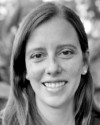 |
Rohner, StephanieStephanie's research interests are: Colonial Latin American literature and culture; Race and indigeneity in the viceroyalties of Peru and New Spain; Pre-Columbian material culture; Censorship and textual transmission; Jesuit historiography |
T-Z
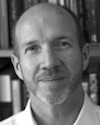 |
Webber, Andrew J.Andrew J. Webber is Professor of Modern German and Comparative Culture. He has research and teaching interests in a wide range of German and comparative film, from the 1920s to the present day. A particular concern of his work is how film relates to psychoanalysis, the Gothic imagination, constructions of gender and sexuality, and the urban, and he has published essays on combinations of all of these. |


